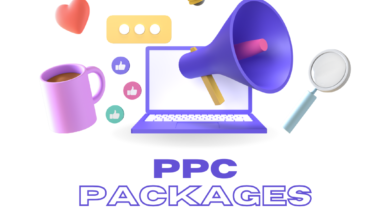
As a business owner, you have many responsibilities. You need to make sure that your practice runs smoothly, and that it’s able to meet financial goals while delivering excellent patient care. Managing the revenue cycle is an important part of this equation. But if you don’t have the right resources in place—or if they’re stretched thin by competing priorities—you could find yourself losing money or even going out of business.
When your healthcare practice is widely Known. But you’re struggling to get paid on time due to a lack of internal medical billing expertise. It’s technically bad for business.
When your healthcare practice is widely known. But you’re struggling to get paid on time due to a lack of internal billing expertise, it’s bad for business. It’s bad for your reputation. Hence, can lead to staff morale problems and cash flow issues.
A great way to improve these issues is by hiring an external medical billing service provider. He can help smooth out the rough edges of your internal systems. So that you don’t have any surprises when dealing with patients or insurance companies.
You have options when it comes to outsourcing medical practicing billing service.
- You have options when it comes to outsourcing medical billing. There are three primary types of RCM solutions available to you: Most of the healthcare facilities commit mistakes in revenue cycle management.
- Ongoing contracts – These are the most common, and they’re typically offered on a monthly basis. Contractors will bill your practice for services rendered by an in-house team or staff physician, with the cost being recouped over time through revenue sharing agreements (RSA). Your practice can then choose how much they want to pay per month based on their needs and budgeted expenses.
- Event-based contracts – These arrangements require more advanced planning than ongoing ones because they require that the contractor be able to predict future events in order for them not only meet but exceed expectations set forth by yours truly here at [INSERT NAME OF PRACTICE HERE]. This type of agreement also allows you more control over how much money is spent each month—the contractor charges an hourly fee plus whatever profit margin percentage suits them best!
In many cases, all-in-one solutions are the best choice.
In many cases, all-in-one solutions are the best choice. They’re good for small practices and large ones too, as well as for practices that are just starting out. All-in-one services offer an integrated package of billing and payment tools and can be customized to meet your company’s needs.
The main benefit of choosing an all-in-one billing service is that it saves time and money by eliminating the need to switch between multiple systems every few years or so when your business changes its focus or grows beyond its current scope. You’ll also get access to more features than you could ever hope to implement yourself: everything from invoicing templates through automated reminders about upcoming payments or collection deadlines will be included within one package!
Complete solutions reduce overhead and complexity.
- Reduce overhead and complexity.
- Reduce the amount of time spent on billing.
- Reduce the number of staff needed to handle billing.
- Reduce the number of vendors involved in your medical practice billing process, including third-party payers such as insurance companies and government agencies that require you to report payments made in their name back to them or other parties (e.g., if you receive a payment from an agency such as Medicare).
In addition, when using an automated solution , there is no need for multiple logins or passwords because all activity related to processing payments is managed through one central account so that everything stays organized and under control!
The right solution should be scalable and flexible across multiple facilities.
When it comes to finding the best billing service, there are a few things that you should consider. The first thing is scalability and flexibility. You want your solution to be able to grow with you as your business grows, so that if an opportunity arises in another location or with another provider, your billing software won’t have any trouble accommodating it.
If possible, try looking for a solution that has multiple locations built into its design; this way, if one office gets too busy and needs more staff or equipment (or both), other offices could take care of those duties while yours remains stable at all times. If this isn’t possible—or if such features aren’t necessary for your business model—then it’s still worth considering whether or not the company offers additional services like remote access from anywhere on earth (so long as those servers aren’t located in Russia).
Finally: make sure any potential vendor understands who they’re dealing with when it comes down specifically
Insights into recent changes in the industry can help you make a sound decision.
Medical billing is a growing industry and there are many solutions available to help you manage your practice. However, it can be difficult to choose the right RCM for your needs. In this section, we’ll explore some recent changes in the medical billing space that may help you make an informed decision when selecting an RCM.
- The number of RCMs has grown rapidly over recent years due to increased demand for solutions from health care providers.
- Today’s RCMs are more affordable than ever before thanks to advancements in technology that allow them to operate at scale with minimal costs and overhead.* This means that even smaller practices can afford access to these powerful tools; which means they’re accessible even if you don’t have access yourself!
Technology can help you tackle challenges and drive results.
Technology can help you tackle challenges and drive results.
- Technology can help you manage your RCM more efficiently, especially when it comes to billing. For example, you could use an online tool to track patients’ progress on their treatment plan, which will help keep them on track while they’re for their payments. That way, there aren’t any gaps in service. No one who has paid yet is left out in the cold. Because they have run into a snag in their insurance coverage. Other issues relate to payment plans (like delays).
- Technology also helps with patient retention by making it easier for patients’ families members or friends who may not have access themselves but still care about how things are going at home (or wherever else) during these difficult times! If one refer his a loved one from another practice but doesn’t know much about what’s happening during treatment stages then having access through technology would be crucial.-Especially since these days many people prefer using smartphones rather than computers; so being able. They provide medical records systems
Most doctors don’t like the idea that 3rd party can handle their revenue cycle management (RCM).
In the world of medical practice billing, there is a big difference between revenue cycle management (RCM) and billing. RCM is about collecting and analyzing data to better understand your patient’s health status, while billing is about sending invoices.
Most doctors don’t like 3rd party to handle their revenue cycle management (RCM). It’s not just that they prefer to do it themselves; they also feel that they lack adequate training in this area. This can lead them to make mistakes or miss important details. When it comes time for filing an invoice or responding back after receiving one from their patients’ insurance providers…
Not all RCMs are equal; they offer different solutions based on your practice size and needs.
Not all RCM services are equal; they offer different solutions based on your practice size and needs. If you don’t know what you need, it can be hard to find the right RCM for your practice.
One of the first things to consider when choosing an RCM is its size. Will it cover only some of your patients’ bills or will it handle them all?
There are many types of RCM solutions available to you. So you don’t have to settle for one that’s not right for you
Some better suit to small practices and others better suit to large practices. Some are designed for solo practitioners and others for groups.
The best way to find out which type of RCM solution best suits for your practice. Do this by a thorough research on the available options before choosing one.
Conclusion
When you start to deal with the subject of medical billing, it’s easy to become overwhelmed. The industry is complex, and there are a lot of variables that can affect your bottom line. However, we’ve broken down the key factors you should consider when choosing an RCM solution for your practice. You can get outlines how they relate to each other in this overview of best practices. By doing so, we hope to help medical practices make informed decisions about how best handle their revenue cycle management needs. They can ultimately save time and money while doing so!



